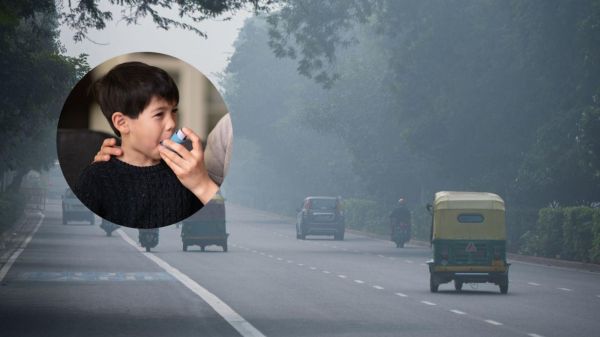
Increasing pollution and asthmaImage Credit source: Getty Images
The level of pollution in Delhi-NCR has remained in a dangerous situation for some time. Particles like dust, smoke, PM2.5 and PM10 are increasing rapidly in the air, which makes breathing heavy even for an ordinary person. In such a situation, children and the elderly are being affected the most. Due to continuous exposure to smog, symptoms like cough, irritation in eyes, obstruction in breathing and chest tightness seem to be increasing rapidly. In such a situation, the problem of asthma is also increasing.
pollution The fine particles go directly into the lungs and cause inflammation, causing narrowing of the airways. This condition triggers asthma or makes pre-existing asthma worse. Children's lungs are not fully developed yet, so poisonous air quickly harms them. At the same time, the already existing respiratory and heart problems in the elderly get worse due to pollution. Its main symptoms include persistent cough, heaviness in the chest, whistling sound while breathing, rapid breathing, feeling tired again and again and shortness of breath at night. Some people also experience eye irritation and sore throat. All these signs show that pollution is directly affecting the lungs.
Dr. Subhash Giri in the Department of Medicine at RML Hospital It is suggested that during times of high levels of pollution, keep children and the elderly indoors as much as possible, especially in the morning and evening when AQI is at its worst. Use air purifiers at home and keep rooms dust-free. If it is necessary to go out, wearing an N95 or N99 mask is the most important step.
Drink adequate amount of water so that moisture remains in the body and swelling reduces. If symptoms of asthma appear, take the inhaler regularly as prescribed by the doctor and do not change the dosage of medicines on your own. Dress children and elderly in warm clothes to protect them from cold wind. Steam inhalation during the day, light exercise and fresh home-made food provide relief to the lungs. If the condition worsens or there is difficulty in breathing, immediately consult a doctor.
Go out only after checking AQI.
Make school going children wear masks.
Always keep an inhaler with you for asthma patients.
Keep good ventilation in the house, but do not allow smoke or dust to enter.
Plants like snake plant and aloe vera improve the air in the house.
Avoid any kind of stressful exercise during smog days.